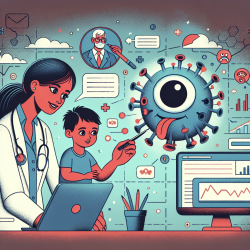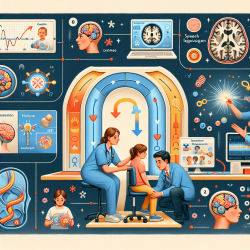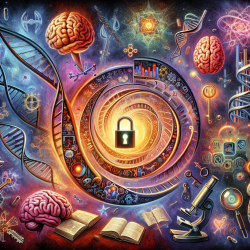The mental health crisis among youth is an urgent issue, with traditional therapeutic methods struggling to meet the increasing demand for services. However, a recent study titled Objectively Quantifying Pediatric Psychiatric Severity Using Artificial Intelligence, Voice Recognition Technology, and Universal Emotions: Pilot Study for Artificial Intelligence-Enabled Innovation to Address Youth Mental Health Crisis provides a promising solution. This research explores the use of artificial intelligence (AI) and voice recognition technology to objectively measure emotional states, potentially transforming pediatric mental health care.
In this study, audio recordings of children with high adverse childhood experience (ACE) scores were analyzed using deep learning models to detect emotions such as anger, fear, sadness, and happiness. The results showed that AI models could achieve high precision and recall in identifying emotional intensities, making them valuable tools for mental health practitioners.
Key Findings and Implications
- The transformer-based AI model achieved a precision of 86% and a recall of 79% for binary emotional intensity classification.
- The CNN-based model, which generalized to predict the intensity of four different emotions, achieved a precision and recall of 83% each.
- AI models can serve as decision-support tools, helping practitioners triage youth to appropriate levels of mental health care.
These findings indicate that AI can significantly enhance the objectivity and efficiency of emotional assessments in pediatric mental health care. By integrating these technologies, practitioners can make more data-driven decisions, potentially improving treatment outcomes for children.
Implementing AI in Practice
For practitioners interested in leveraging AI for better mental health outcomes, here are some actionable steps:
- Adopt AI Tools: Utilize AI models that have been validated for emotion detection in clinical settings. These tools can complement traditional assessment methods, providing a more comprehensive understanding of a child's emotional state.
- Continuous Training: Engage in ongoing training to stay updated on the latest advancements in AI and voice recognition technologies. This ensures that practitioners can effectively integrate these tools into their practice.
- Data-Driven Decisions: Use the objective data provided by AI models to inform treatment plans. This can help in identifying high-risk patients and allocating resources more efficiently.
- Ethical Considerations: Ensure that patient privacy and data security are prioritized when implementing AI tools. Transparency with patients and their families about how their data is used is crucial.
Encouraging Further Research
While the study presents promising results, further research is essential to refine these AI models and explore their broader applications. Practitioners are encouraged to participate in or support research initiatives that aim to improve AI-driven emotional detection systems. This collaborative effort can accelerate the development of more accurate and reliable tools, ultimately benefiting the pediatric mental health care landscape.
To read the original research paper, please follow this link: Objectively Quantifying Pediatric Psychiatric Severity Using Artificial Intelligence, Voice Recognition Technology, and Universal Emotions: Pilot Study for Artificial Intelligence-Enabled Innovation to Address Youth Mental Health Crisis.










